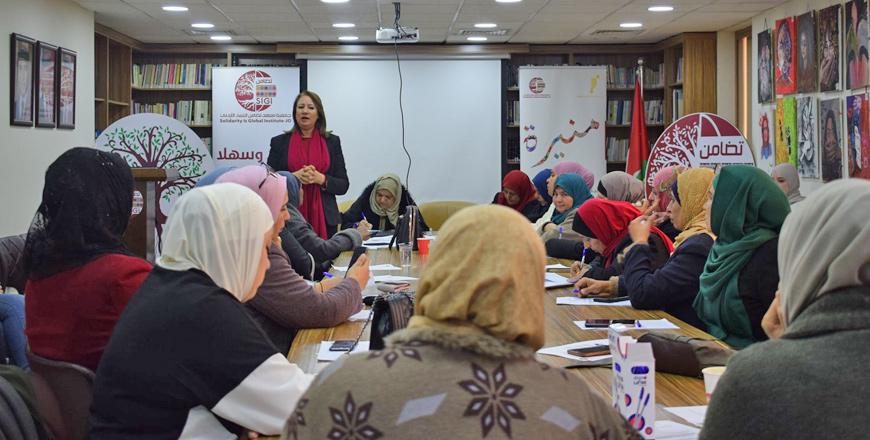You are here
SIGI’s fact sheet sheds light on women’s woes amid pandemic
By Ahmad Amaireh - Mar 09,2021 - Last updated at Mar 09,2021

Women and children are more likely to be victims of domestic abuse during the pandemic, according to SIGI (AFP file photo)
AMMAN — The Solidarity is Global Institute (SIGI) has conducted a study on the impact of the COVID-19 pandemic from a gender perspective and has released a fact sheet on the virus crisis based on societal factors.
Titled “A Year into the Corona pandemic in Jordan”, the fact sheet seeks to analyse the COVID-19 data issued by the Ministry of Health and showcase the negative effects of the pandemic on women and girls, according to SIGI.
Asma Khader, founder and CEO of SIGI told The Jordan Times that it is crucial to disaggregate the data related to the pandemic based on societal factors to better understand the impact it will have on society.
This will further help the government take the right decisions and determine priorities and measures necessary to prevent it from deteriorating, Khader added.
“One of the most important findings of the fact sheet is the extra burdens incurred by women and girls that go unacknowledged, such as taking care of the house and children from cleaning to teaching to cooking all unpaid and without the assistance of anyone,” Khader said.
She pointed out that women and children are more likely to be victims of domestic abuse during the pandemic. The presence of women and children in households experiencing domestic violence, as well as a lack of food and financial resources as a result of the lockdown, raises the chance of violence against women and children becoming worse.
In this case, asking for help can be even more challenging since some women are not familiar with technology and might find it hard to seek refuge elsewhere, Khader noted.
The fact sheet also sheds light on the importance of media outlets, especially radio, as an information source on the situation of the country for all groups
This is essential as there are some groups within society that require special attention, such as people with disabilities, illiterates, the elderly, people who live in remote areas, and people who do not speak Arabic, according to the fact sheet.
Women’s economic participation in Jordan is very limited, and the pandemic has exacerbated the problem because many of them work in informal jobs with no social security, according to SIGI.
According to the Unemployment Survey for the fourth quarter of 2019, 87 out of every 100 women in Jordan are unemployed, Khader noted.
She highlighted the lack of female representation in decision-making positions, the inability of domestic workers to reach their families and go back to their countries, as well as the deterioration of reproductive health services, as shown in the fact sheet.
One of the most significant recommendations made by SIGI in the fact sheet is to include more women in decision-making positions and to ensure that they are represented in any committees formed to combat the pandemic at all levels, especially health and security, she said.
The recommendations also include, providing social, health and psychological services as well as protection measures for survivors of domestic violence, disbursing cash aid as well as moral support to women who are considered the primary providers of the household, encouraging men and boys to share family and household responsibilities, and ensuring that all women, especially pregnant women, have access to clean and safe reproductive health services.
It also recommended ensuring that migrant and domestic workers earn their wages and that their jobs meet the requirements of decent work.
Related Articles
AMMAN — Solidarity is Global Institute (SIGI) on Sunday launched a national coalition to promote reproductive health rights and combat viole
AMMAN — Women’s rights activists on Thursday said that the disappointing results for women candidates in the parliamentary elections was exp
AMMAN — A local organisation on Monday said despite the low female turnout in the recent parliamentary elections, the increase in number of

















